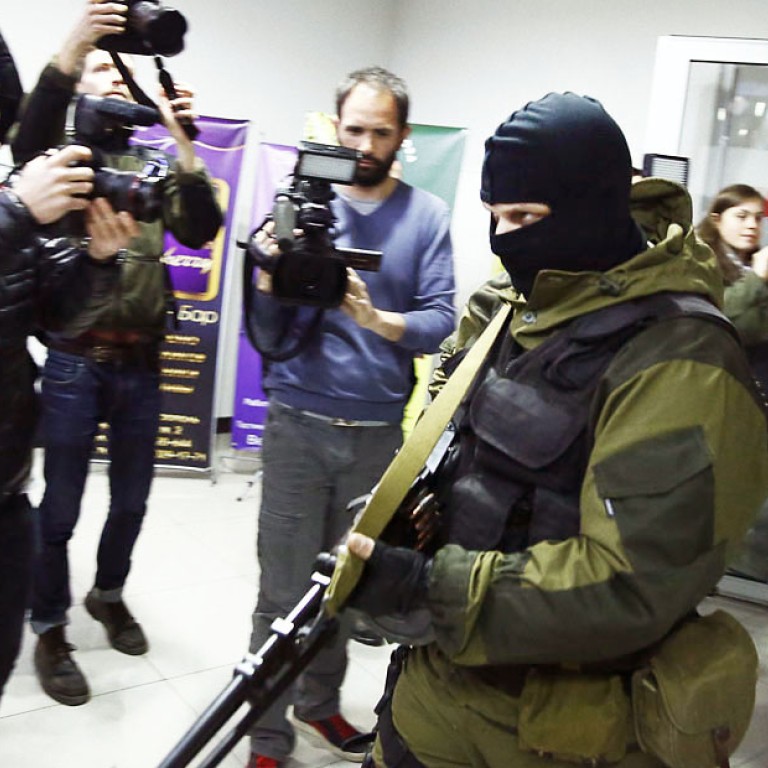
Experts warn of wider effects of harsh sanctions on Russia over Ukraine
Broad measures targeting Kremlin might be bad for EU and Ukraine, business leaders warn
With diplomatic efforts having failed to defuse the crisis in Ukraine, political and business leaders are worried that plans to place sanctions on the Kremlin will create an economic meltdown in the economies of the European Union and Ukraine, both of which have important trade relations with Russia and depend on it for their energy supplies.
Last year the EU accounted for 45 per cent of Russia's exports, two-thirds of which were natural gas and oil, according to World Trade Organisation statistics. Russia imported US$344 billion worth of products from Europe. The EU supplies about one-third of Russia's imports.
Ukraine last year sold about US$15.75 billion worth of products to Russia - its largest market - with iron and steel and cereals its principal export items. Russia is also the major source of Ukraine's imports, accounting for US$25.6 billion of Ukrainian purchases, just under a third of the country's US$77 billion total; the EU accounted for slightly less.
Across-the-board sanctions are quite disruptive to economies
Meanwhile, two-way US-Ukraine trade was just US$2.9 billion last year.
Jean-Guy Carrier, secretary general of the International Chamber of Commerce, warned that an escalation in sanctions would be very damaging to world trade and "economic madness".
Just what sanctions the United States and Europe will agree to is unclear. To date, the two sides have limited the specifics to travel restrictions and possible action against specific individuals. They have avoided discussion of such crippling sanctions as limitations of Russian oil and natural-gas purchases.
"We don't like sanctions on principle. They are a very disruptive instrument in dealing with political subjects, but if they come about, the type of sanctions should be as targeted as possible," Carrier said. "If used, they should be on individuals. Across-the-board sanctions are quite disruptive to economies."
US President Barack Obama has said his country prefers not to impose broad sanctions. But with Russia vetoing a UN Security Council resolution calling for a halt in a referendum in Crimea yesterday that is expected to clear the way for Russia to annex the region, that position may change.
China abstained from voting on the United Nations resolution because Beijing was trying to "stay diplomatically elastic", said Li Xing , a professor of international relations at Beijing Normal University.
"China did not make clear which side it's standing by, the Russians, or the Americans," he said, "but the result remained in favour of Russia because Moscow vetoed the resolution."
The Chinese foreign ministry said yesterday the resolution would only have led to confrontation among different parties and a more complex situation, which goes against the interests of Ukrainian society.
"We believe the situation in Ukraine stemmed from both historical and current factors and therefore needs comprehensive consideration," spokesman Qin Gang said. "China disagrees with taking measures that would lead to conflict."
He said China had suggested establishing an international mediation mechanism.
A senior Russian official said he was not yet concerned sanctions would be broad.
A former senior US official said he expected Congress to demand tougher sanctions, especially if Russian forces move into other parts of Ukraine.
"You can clearly see from the US side that they want to put the screws on Russia," he said. "If they [Russians] make further moves in the east, I can see significant trade restrictions."
